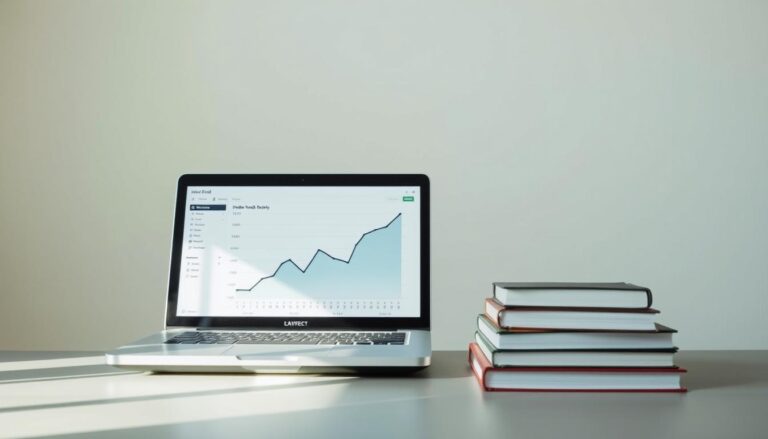How to Manage Finances When You’re Self-Employed
Managing self-employed finances effectively is crucial for the success of your business and your personal financial stability. As a self-employed individual, you’re not just responsible for your business’s financial health but also for your own.
Effective financial management involves understanding your income and expenses, creating a budget, and planning for taxes. For freelancers, freelance financial planning is about making informed decisions that impact your business’s bottom line and your personal financial security.
This article will explore key strategies for managing your finances as a self-employed individual, including separating personal and business finances, tax planning, and budgeting with inconsistent income.
The Financial Challenges of Self-Employment
Self-employment brings a unique set of financial challenges that can be daunting. One of the primary concerns is managing irregular income, as earnings can fluctuate significantly from one month to another. This unpredictability makes it challenging to budget and plan for the future.
Irregular Income: Unlike salaried employees, self-employed individuals face uncertainty regarding their monthly income. This can lead to difficulties in managing cash flow and making timely payments.

Complex Tax Obligations: Self-employed individuals are responsible for their own tax planning, including making estimated tax payments throughout the year. According to the IRS, self-employed individuals must pay self-employment tax, which includes Social Security and Medicare taxes. This adds a layer of complexity to their financial responsibilities.
Retirement Planning: Another significant challenge is planning for retirement. Without access to an employer-sponsored 401(k) plan, self-employed individuals must take the initiative to secure their financial future through alternative retirement savings options.
Understanding these financial responsibilities is crucial for maintaining financial stability. By acknowledging the challenges and proactively managing finances, self-employed individuals can better navigate the complexities of their financial situation.
Separating Personal and Business Finances
One of the most critical steps in managing your finances as a self-employed individual is to keep your personal and business finances separate. By maintaining separate accounts for your business and personal finances, you can simplify your financial management, reduce the risk of errors on your tax return, and make it easier to track your business income and expenses.
According to Fidelity, keeping business and personal finances separate can help you better track cash flow, manage expenses, and make tax time easier. This separation also helps you to pay yourself a regular salary, which can aid in budgeting and financial planning.

For tax purposes, separate accounts make it easier to identify business expenses that can be deducted, reducing your taxable income. This can lead to significant savings and a more streamlined tax preparation process. By keeping your business and personal transactions separate, you can ensure you’re taking advantage of all the deductions you’re eligible for, minimizing your tax liability.
Furthermore, having separate accounts can help you maintain accurate financial records, which is crucial for making informed business decisions and ensuring compliance with tax laws. It’s a simple yet effective way to manage your finances and reduce the stress associated with tax season.
How to Manage Finances When You’re Self-Employed: Tax Planning Strategies
Self-employed individuals face unique tax challenges that require proactive planning to minimize their tax liability. As a self-employed individual, you are required to pay self-employment tax, which includes Social Security and Medicare taxes. To avoid penalties, it’s essential to make estimated tax payments throughout the year.
Making Estimated Tax Payments
The IRS provides Form 1040-ES for making estimated tax payments. You can make these payments online, by phone, or by mail. It’s crucial to accurately estimate your tax liability to avoid underpayment penalties. You can use Form 1040-ES to calculate your estimated tax payments based on your expected income and expenses for the year.
Understanding your tax obligations and planning accordingly can help you manage your tax liability and avoid unexpected tax bills. Keeping accurate records of your business income and expenses is also vital to ensure you’re taking advantage of all eligible deductions. By doing so, you can reduce your taxable income and lower your tax liability.
Tax planning is not a one-time task; it requires ongoing attention throughout the year. Regularly reviewing your income and expenses can help you identify opportunities to reduce your tax liability. Additionally, staying informed about changes in tax laws and regulations can help you make informed decisions about your tax planning strategies.
Budgeting with Inconsistent Income
Creating a budget that works with inconsistent income is a crucial skill for self-employed professionals. The irregularity of income can make financial planning challenging, but with the right strategies, it’s possible to manage your finances effectively.
One effective way to manage your cash flow is by setting up an automatic transfer from your business account to your personal account. This simulates a regular paycheck and helps you budget more effectively. By doing so, you can ensure that you have a steady amount for your living expenses, regardless of the fluctuations in your business income.
Building an emergency fund is also crucialwhen you’re self-employed with an inconsistent income. This fund acts as a safety net during slow periods, covering unexpected expenses and ensuring that you can continue to meet your financial obligations. Aim to save enough to cover at least three to six months of living expenses.

Additionally, it’s essential to regularly review and adjust your budget to reflect changes in your income and expenses. This flexibility allows you to respond to financial challenges and opportunities as they arise, keeping your financial plans on track.
By implementing these strategies, self-employed individuals can better navigate the challenges of irregular cash flow, ensuring a more stable financial future.
Financial Tools and Resources for Self-Employed Professionals
The key to successful financial management for self-employed professionals lies in leveraging the right financial tools and resources. As a self-employed individual, you have access to a range of financial tools that can help you manage your finances more effectively.
Accounting software is one such tool that can simplify tracking your income and expenses, making it easier to stay on top of your financial situation. Utilizing accounting software can help you streamline your financial management, reduce stress, and focus on growing your business.
Financial services like Fidelity offer cash management accounts that provide features such as check writing, debit cards, and online bill pay, making it easier to manage your business finances. These services can help you keep your personal and business finances separate, further simplifying your financial management.
By leveraging these financial tools and resources, self-employed professionals can better manage their finances, plan for the future, and achieve their business goals. Whether it’s through accounting software or financial services, having the right tools at your disposal can make a significant difference in your financial stability and success.
Conclusion: Taking Control of Your Financial Future
Managing your finances effectively as a self-employed individual requires ongoing effort and planning. By implementing the strategies outlined in this article, you can take control of your financial future and achieve financial stability.
To achieve long-term financial success, it’s essential to separate your personal and business finances, plan for taxes, budget effectively, and utilize financial tools and resources. Consider using personal finance apps like top-rated budgeting apps to track your expenses, set goals, and save money.
By following these tips and staying committed to your self-employed financial planning, you can enjoy the freedom and flexibility that comes with being your own boss. Regular monitoring and adjustments will help you stay on track, ensuring a stable financial future.






